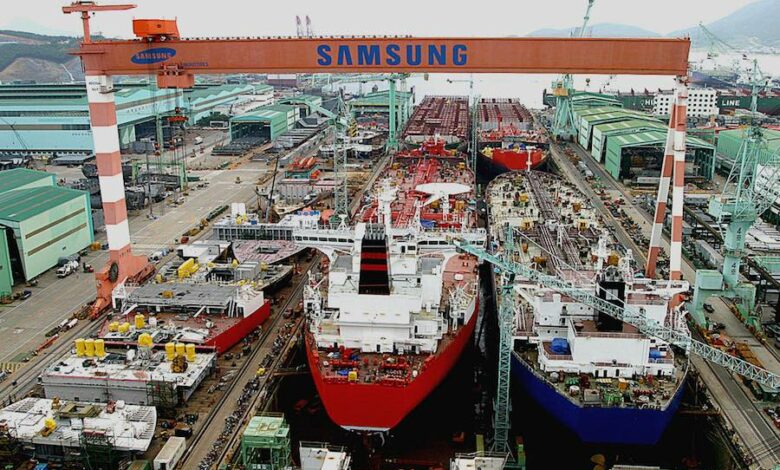
South Korean shipbuilder Samsung Heavy Industries (SHI) and US company Bloom Energy have announced a collaboration to design and develop ships powered by Bloom Energy’s solid oxide fuel cell technology.
SHI said it aims to be the first shipbuilder to deliver a large cargo ship for ocean operation powered by fuel cells running on natural gas, which it says will play a key role in helping the company exceed the IMO’s 50% emissions reduction target by 2050.
The two companies have already taken an important first step towards commercialising the maritime use of fuel cells for propulsion and auxiliary power, with SHI receiving approval in principle from DNV GL to proceed with the design for an aframax tanker.
“As regulations to reduce GHG emissions take effect step-by-step, the introduction of fuel cells to vessels is inevitable. This approval, and being the first shipbuilder to secure this marine fuel cell technology, illustrates that Samsung Heavy is highly likely to lead the market,” said Kyunghee Kim, vice president of SHI’s outfitting engineering team.
“It is a meaningful GHG emissions reduction measure to apply Bloom Energy’s fuel cell system to SHI’s new aframax design. SHI’s new aframax design is equipped with a new generating system in combination of the conventional, generator engines, and the new fuel cell technology, both fueled with LNG,” said Hwa Lyong Lee, vice president of regional business development, maritime at DNV GL.
Bloom Energy and SHI estimate that replacing oil-based power generation on large cargo ships, which require up to 100 megawatts of power per ship, could reduce annual greenhouse gas emissions from shipping by 45%.
“Bringing the Bloom Energy Server’s transformative clean technology to the shipping industry provides us with a tremendously exciting opportunity to accelerate the decarbonization of another vital sector of the global economy,” said KR Sridhar, founder, chairman and CEO of Bloom Energy.

Would love to know…how the economics work here.
10MW aframax need 50M$ worth of fuel cells.
assuming $5000 per kw.